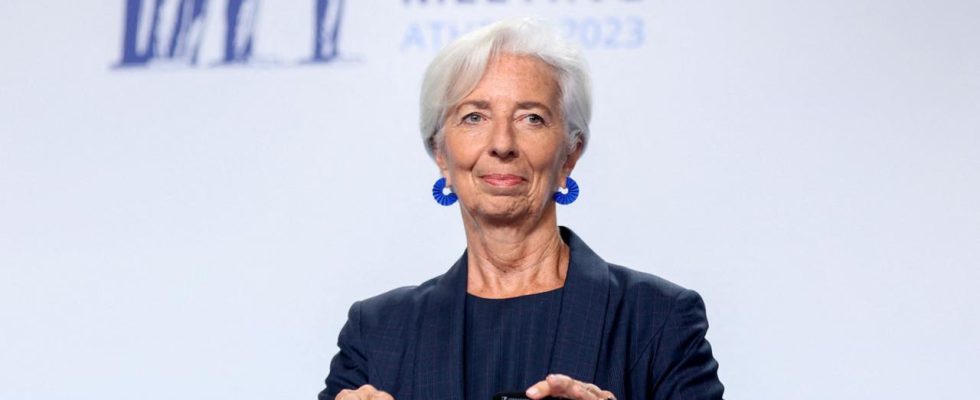analysis
The ECB raised interest rates ten times to 4.5 percent, and now the monetary authorities are putting the brakes on. The Central Bank Council did not want to commit to the future course at its meeting in Athens.
Yannis Stournaras has been President of the Greek National Bank for almost ten years, and before that he was the country’s Finance Minister for several years. The trained economist and long-time professor at the University of Athens has seen it all: debt crisis, euro crisis, near exit from the euro area. It was with pride that the now 66-year-old welcomed the members of the Governing Council of the ECB to their annual meeting in his hometown.
Greece has put the crisis behind it, the economy is running smoothly and the inflation rate is enviably low: it is only 2.4 percent, even though everything has become much more expensive for the Greek population.
The ECB Council also wants to reduce inflation in the entire euro area in this direction, or more precisely to two percent. And because he believes that we are on the right track, the committee decided today to take a break from interest rates and let the effect of the already high interest rates continue to have an effect.
Unanimous decision
“You can see that the measures taken so far have been very successful,” said ECB President Christine Lagarde at the subsequent press conference in the Greek National Bank building. The ECB Council is therefore confident that the inflation rate will continue to decline at the current interest rate level. Compared to its peak in autumn last year, it has already more than halved and is now 4.3 percent in the euro area.
The ECB President emphasized that the decision was unanimous and brushed aside critical questions. The last meeting in September was by no means as harmonious, even if everyone pulled together in the end. At least that can be seen from the minutes that have now been published.
Worries about the economy
But it wasn’t just the hope of the continued impact of its previous monetary policy that caused the ECB to put the brakes on interest rates today. Concerns about the deteriorating economy also played a decisive role. The high level of interest rates means that companies are investing less and less because the costs of loans are too high. Consumers are holding back when shopping because consumer loans have also become really expensive.
But the construction industry was hit hardest. The high interest rates have destroyed many projects there, some companies are already bankrupt and many house and apartment owners are having more and more difficulty coping with the significantly increased financing.
The ECB’s interest rate break was expected on the financial markets. There has been speculation here for a long time that the interest rate cycle has reached its peak and that the ECB could lower interest rates again next year.
But the head of the ECB did not want to confirm any of this today. Lagarde categorically ruled out an imminent interest rate cut. What happens at the next meeting in December is completely open and depends on the new data that arrives from our own economists.
Inflation issue not ticked off
There are many indications that the ECB will maintain interest rates in the near future if inflation does not rise sharply again. However, this cannot be ruled out because forecasts are currently hardly reliable, especially when it comes to food and energy prices. Food prices remain disproportionately high and poor harvests in many areas could drive them up further. The war in the Middle East has already driven up oil prices. Further price increases at gas stations and for heating oil are likely.
So the issue of inflation has not yet been ticked off. The approximately 347 million citizens of the currency area will have to be patient until inflation returns to a tolerable level. But Lagarde promised again that everything would be done to achieve the two percent target, repeating the sentence she has quoted over and over again for weeks: “Inflation has been far too high for far too long.”

